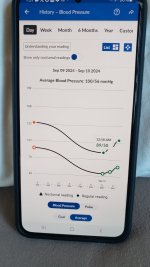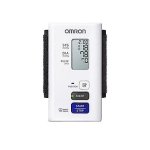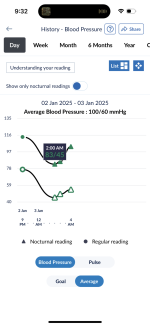Well I found the answer. Turns out it was hiding in front of my face - and stupid doctors faces also. My blood pressure was low. So low barely any oxygenated blood was passing through my capillaries perfusioning my tissues. It appears my sympathetic nervous system was not innervating my SA node ( heart rate) or myocardium ( heart contractility) sufficiently while sleeping. Everyone's BP dips during sleep ( almost everyone) to give the heart a rest. But this averages around 10-15% for most people. But some people dip far more and if >25% are called extreme dippers. This doesn't cause too many problems when you are young but as one ages, the overall delivery of O2 declines for many reasons and it becomes more and more an issue. Turns out I'm about 30% which is not good. I can now measure this on an overnight Omron BP monitor which records 3 recordings each night. So after many nights, its easy to see both deep sleep and awake and sometimes near on another in time. I can have my BP in the 89/55 range while asleep and 20 minutes later when awake its 140/91.
So that's the answer to my CFS/ME problem. Very basic physiology. Because its blood pressure, my O2 saturation looks just fine. Even places like Stanford don't monitor BP during sleep studies which explains why they didn't catch it. DUH! The FDA has not seen fit to approve an overnight BP monitor so there is no easy way to check yourself. Doctors can order an ambulatory monitor for one night but they need to think of it plus its a hassle and one night's readings are not very thorough if one also has insomnia. The whole thing shows how the medical doctors are not that creative, rather lazy and most are downright stupid. They just happen to have gone to medical school rather than welding or car repair. Make sure your doctor is smart and creative. Dumb doctor's are half the problem. What kind of doctor doesn't think of blood pressure when presented with my facts. A dumb one.
The solution is raising sleep BP just enough to get by. Turns out a drug called Fludrocortisone does just that by mimicking aldosterone in the Kidney RAAS system. So by taking the right dose just before sleep my symptoms stop 100%. Its tricky getting the dosage and timing right but it works.
So that's the answer to my CFS/ME problem. Very basic physiology. Because its blood pressure, my O2 saturation looks just fine. Even places like Stanford don't monitor BP during sleep studies which explains why they didn't catch it. DUH! The FDA has not seen fit to approve an overnight BP monitor so there is no easy way to check yourself. Doctors can order an ambulatory monitor for one night but they need to think of it plus its a hassle and one night's readings are not very thorough if one also has insomnia. The whole thing shows how the medical doctors are not that creative, rather lazy and most are downright stupid. They just happen to have gone to medical school rather than welding or car repair. Make sure your doctor is smart and creative. Dumb doctor's are half the problem. What kind of doctor doesn't think of blood pressure when presented with my facts. A dumb one.
The solution is raising sleep BP just enough to get by. Turns out a drug called Fludrocortisone does just that by mimicking aldosterone in the Kidney RAAS system. So by taking the right dose just before sleep my symptoms stop 100%. Its tricky getting the dosage and timing right but it works.



